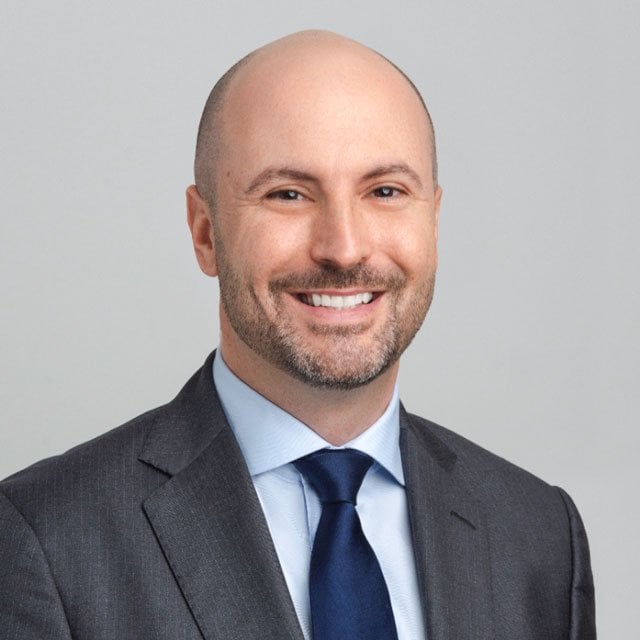Why 'Retirement' Language Falls Flat With the Ultra-Wealthy

What You Need to Know
RIAs have a lot to offer ultra-high net worth clients that banks and brokerages can’t deliver, family office wealth advisor David Savir says.
One key for RIAs looking to win UHNW clients is to look beyond financial independence, which they have already achieved.
Clients with $10 million or more can require expertise in complex and diverse areas like trust planning, tax-loss harvesting, private aviation and fine art.
Many financial advisors are comfortable working with clients who are building substantial wealth, with the goal often being to earn enough from working income and investments to achieve a stable, dignified retirement — and to potentially pass some excess wealth to the next generation or an important charitable cause.
In the experience of David Savir, co-founder and CEO of Element Pointe Family Office, working with ultra-high net worth clients is different, especially once the investable assets top $10 to $15 million. Given the size of their fortunes, clients in this range have a unique perspective on wealth, and they tend to have a set of goals that varies substantially even from the mass affluent.
With this difference in perspective, Savir says, advisors who want to break into the UHNW space must retool their approach. Specifically, the framework of pursuing “financial independence” or “sustainable retirement income” just won’t resonate with the ultra-wealthy, because this independence already exists.
Instead, advisors with ambitions to enter this marketplace must be “true, holistic wealth planning consultants” for UHNW clients, Savir says. Success requires expertise on topics that range from trust planning and tax-loss harvesting to private aviation and art collection curation.
While the work is more demanding, it is often very meaningful to see the impact UHNW clients can have on their communities. And, Savir says, the benefits to the firm are significant as well.
Selecting the UHNW Niche
Prior to co-founding Element Pointe in 2016, Savir worked as a vice president at J.P. Morgan Private Bank, directing a team of investment and lending professionals in advising ultra-high net worth clients throughout the U.S. As he recently told ThinkAdvisor, Savir has spent his entire working life in the high-net worth arena, having begun his career in the investment management division of Goldman Sachs.
Working in those settings was a great education, Savir says, but it also inspired a vision and a desire to do things differently. This vision was shared by Carlos Dominguez, Element Pointe’s other co-founder and chief investment officer.
“The genesis of the firm is that we saw there were needs of ultra-high net worth clients that were not being met by the current business models out there at the big banks and brokerages,” Savir says. “The families with which we worked at J.P. Morgan or Goldman had balance sheets that were so large and complex that they effectively needed a CFO or a CIO. Banks and brokerages aren’t really wired for that.”
Savir says the services of the banks and brokerages are useful, but they are fundamentally limited in that they are product distribution businesses at their core.
“Yes they ‘manage’ money as well, but the true planning and consultation is not in their DNA, and FINRA’s rules against ‘selling away’ make it untenable for them to do what we can do as a fee-only RIA,” Savir says. “We had a strong conviction that we could differentiate ourselves in this space as a fee-only RIA, where our sole source of revenue comes from advising clients. It’s great to be able to have that true alignment.”
Savir says the firm at first tried to also serve the mass affluent marketplace, but it soon became apparent that the planning needs of the two markets are different enough that true specialization was needed.
Why ‘Retirement Planning’ Is Often Irrelevant
Regarding these planning needs, Savir says, one big difference between the two client groups is the scope of goals being considered. For many clients in the middle class and the mass affluent, financial advisors are asked to help with retirement planning and the effort to build shorter-term financial wellness.
Much of the work on the accumulation side involves coordinating tax-advantaged retirement plan assets, health savings accounts, 529 college savings accounts and taxable brokerage accounts. Then, the decumulation effort involves tax-efficient retirement income planning and, in some cases, relatively modest but still meaningful legacy planning.
These needs exist for UHNW clients, to some extent, but the overall planning needs are much more expansive, Savir explains, and the most important goals in the eyes of the clients tend not to be so personal.
In the case of Element Pointe Family Office, for example, the current new-client minimum is $15 million in investable assets. This is enough for any individual or family to immediately stop working and enjoy a “retired” life.
“Given that basic fact, ‘retirement’ as a concept is not really the goal or topic of our client conversations,” Savir says. “Instead, the focus is on finding a bigger purpose for their wealth, and putting a wealth plan in place that addresses personal fulfillment and intergenerational legacy. Baring extreme levels of spending, most of the clients we are dealing with will never run out of money in their lifetime.”




